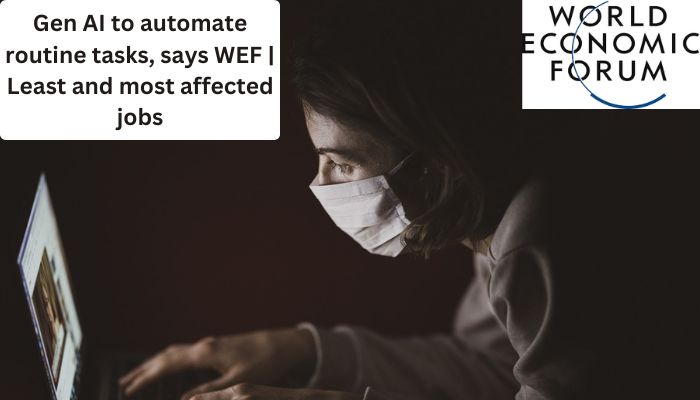WEF White Paper: Impact of Generative AI on Labor Markets
The World Economic Forum (WEF) has issued a white paper outlining the effects of generative artificial intelligence (AI) on the job market, particularly emphasizing the potential for automation in routine language tasks.
Generative AI’s Influence on Future Jobs
Generative AI is expected to have a substantial influence on labor markets by augmenting creativity and automating repetitive tasks in prospective job roles, as per a WEF white paper unveiled on Monday. The paper calls for proactive measures by businesses and governments to prepare for AI’s consequences on the workforce. It encourages the establishment of a versatile workforce and systems that facilitate job transitions.
Impact on Jobs at High and Low Risk
The WEF paper indicates that occupations involving repetitive language tasks are particularly susceptible to disruption. In contrast, positions demanding a high level of personal interaction or physical activity are expected to remain relatively unchanged.
Industries Most Affected by Automation
Industries with the greatest exposure to automation and augmentation include financial services, capital markets, insurance, and pension management.
Jobs Potentially Replaced by AI in the Next Five Years
The white paper identifies ten jobs that AI is likely to replace in the next five years, highlighting four jobs at the highest risk. It also addresses common misconceptions about Generative AI.
Strengthening Creativity and Problem-Solving
Large Language Models (LLMs), a form of deep learning algorithm, have the potential to enhance roles that demand critical thinking, complex problem-solving, and creativity, such as those in engineering, mathematics, and scientific analysis. LLMs increase efficiency by handling routine tasks, making job roles more fulfilling and valuable. As technology progresses, new job categories like AI developers, interface and interaction designers, and AI ethics specialists will emerge.
Advancements in Technology and Labor Markets
These developments coincide with the advancement of tools like GitHub’s Copilot, Midjourney, and ChatGPT, which are expected to bring about significant changes in global economies and labor markets. A recent WEF study predicts that 23 percent of global jobs will undergo transformation in the next five years due to industry changes, including the integration of artificial intelligence.
WEF’s Call for Collaboration
WEF Managing Director Saadia Zahidi emphasized the need for collaboration among business leaders, policymakers, and employees to harness the potential of new job opportunities while managing displacement. This approach aims to ensure a future of work that empowers and uplifts individuals.
UK’s AI Principles
In the United Kingdom, the Competition and Markets Authority (CMA) introduced new principles on Monday to govern AI’s use. These principles promote accountability, accessibility, and transparency with the goal of fostering competitive growth in the technology sector. The CMA seeks to ensure that AI development benefits both businesses and consumers.

